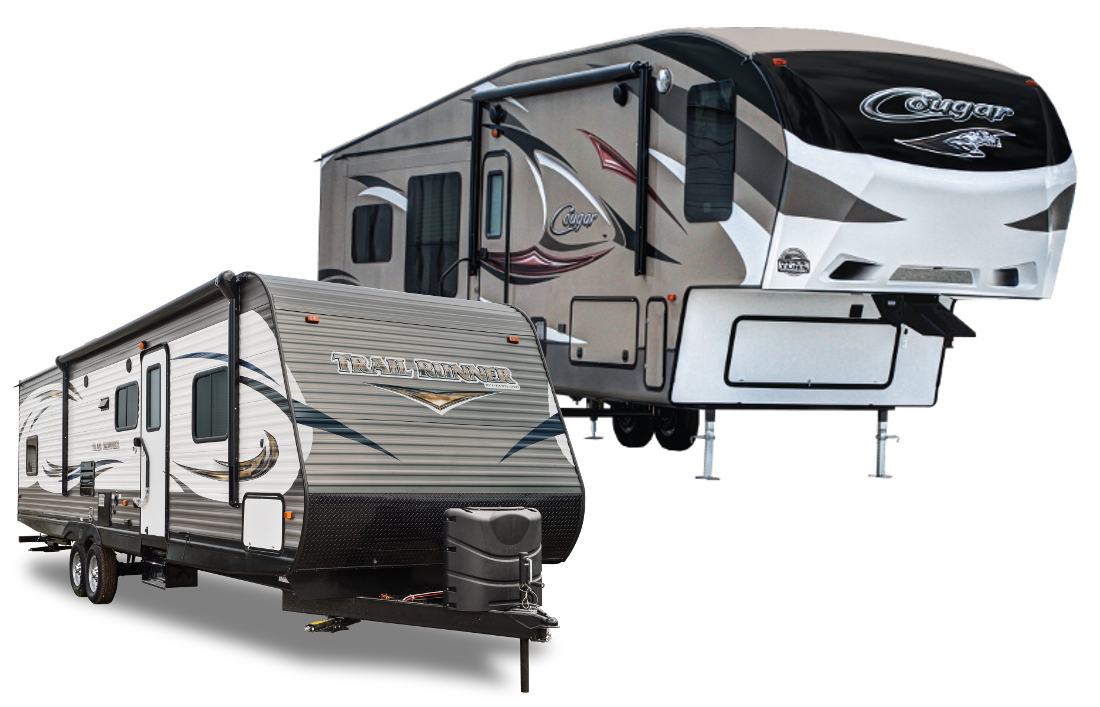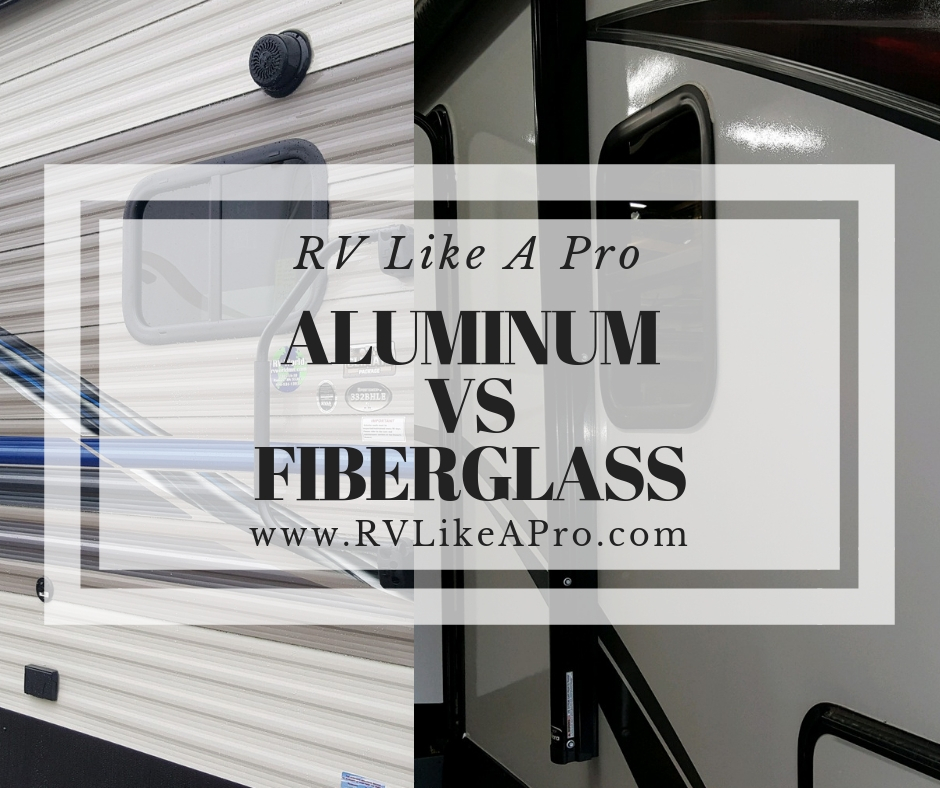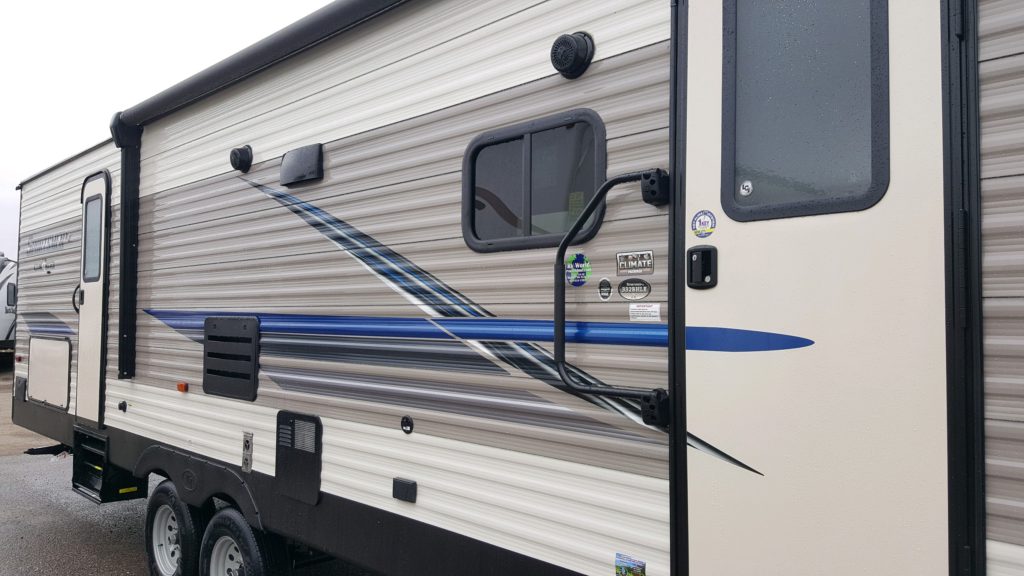As a travel enthusiast and someone who’s spent countless weekends exploring national parks in my trusty travel trailer, I know just how crucial it is to choose the right type of trailer. The ongoing debate between fiberglass and aluminum travel trailers can become quite heated among RV aficionados. With this comprehensive guide, you’ll discover the key differences between fiberglass and aluminum trailers, their pros and cons, and personal experiences that will help you make an informed decision.
Understanding Travel Trailers
Before diving deep into the comparison, let’s get familiar with what travel trailers are and why they’ve become popular among travelers.
What is a Travel Trailer?
A travel trailer is a towable RV designed for camping and on-the-road living. It provides a place to sleep, cook, and relax while you explore stunning landscapes and vibrant cities. They come in various shapes and sizes and can be made from different materials, primarily fiberglass or aluminum.
Why Choose a Travel Trailer?
Several reasons drive people to choose travel trailers:
- Flexibility: Travel trailers enable spontaneous getaways without the need for hotel reservations.
- Comfort: They offer the amenities of home, including a kitchen, bathroom, and comfortable sleeping arrangements.
- Cost-Effective: Owning a travel trailer can save money on accommodations during road trips.
Fiberglass Travel Trailers
Fiberglass travel trailers are known for their smooth exterior and modern design. They tend to be more aerodynamic and can enhance fuel efficiency.
Pros of Fiberglass Travel Trailers
- Durability: Fiberglass is resistant to rust, rot, and corrosion.
- Lightweight: Easier to tow, which can improve fuel efficiency.
- Low Maintenance: The smooth surface requires less upkeep and stands up well against the elements.
Cons of Fiberglass Travel Trailers
- Cost: Typically, fiberglass trailers come with a higher price tag.
- Repairs: Though durable, repairs can be more challenging and costly if structural issues occur.
Aluminum Travel Trailers
On the other hand, aluminum travel trailers boast a classic aesthetic and are known for their ruggedness. They have a long-standing reputation in the RV community.
Pros of Aluminum Travel Trailers
- Affordable: Generally, aluminum trailers are less expensive than their fiberglass counterparts.
- Repairability: Easier to fix should damage occur.
- Resilience: Good resistance to impact and can withstand rough weather conditions.

Cons of Aluminum Travel Trailers
- Condensation Issues: Metal exteriors can suffer from condensation, leading to potential mold growth.
- Maintenance: They require more regular upkeep to prevent rust.
Fiberglass vs. Aluminum: A Comparative Table
| Feature | Fiberglass | Aluminum |
|---|---|---|
| Weight | Lightweight | Heavier |
| Cost | Higher | Lower |
| Durability | High | Moderate |
| Maintenance | Low | Higher |
| Repair Costs | Higher | Lower |

Personal Experiences with Fiberglass and Aluminum Trailers
During one of my road trips through the breathtaking landscapes of Utah, I met a fellow traveler named Mark who owned a fiberglass trailer. He shared his experience of how the smooth exterior gave him peace of mind during a severe storm. His trailer stood strong against the torrential rain, quite an assurance for any nature lover. Conversely, I’ve had friends who opted for aluminum trailers, enjoying the ruggedness and ease of repair after a minor mishap during a weekend camping trip.
Travel Tips for Choosing the Right Travel Trailer
Now that you have a better grasp of the differences between fiberglass and aluminum travel trailers, here are some tips to consider when selecting the right one for your adventures:
1. Define Your Travel Style
Determine how you plan to use your trailer. Are you a weekend warrior or a full-time RVer? Your travel style will heavily influence the choice.
2. Consider Weight and Towing Capacity
Always check your vehicle’s towing capacity before selecting a trailer. Fiberglass trailers are often lighter, making them easier to tow.
3. Assess Storage Needs
Think about the number of people traveling with you and what you’ll need to bring along. Some trailers have more storage options than others.

4. Research Reviews and Ratings
Before purchasing, check out reviews and ratings on platforms such as Amazon, RV Trader, and Camping World. Users often share insights on the performance and durability of their trailers.
Destination Highlights for Trailer Adventures
Traveling with a trailer opens up a world of possibilities. Here are some incredible destinations to consider for your next adventure:

1. Yellowstone National Park
With its breathtaking geysers and abundant wildlife, Yellowstone is a must-visit for any traveler. Numerous campgrounds cater specifically to trailers, making it an ideal destination.
2. Grand Canyon National Park
Experience the awe-inspiring views of the Grand Canyon. There’s something magical about camping under the stars here after a day of hiking.

3. Acadia National Park
While exploring Maine, don’t miss Acadia National Park. The picturesque coastlines and lush forests offer ample opportunities for adventure.
FAQs About Travel Trailers
What is the best option for full-time RV living, fiberglass or aluminum?
While both options can work well, fiberglass trailers are generally more durable and require less maintenance, making them a popular choice for full-time RVers.
How do I maintain my travel trailer?
Regular inspections, cleaning the exterior, checking the roof for leaks, and maintaining the interior systems like plumbing and electrical are key to ensuring your trailer remains in good condition.

Are fiberglass trailers more expensive than aluminum?
Yes, typically fiberglass travel trailers come with a higher initial cost compared to aluminum trailers, but their longevity and low maintenance might balance the expense.
Can I tow a fiberglass trailer with a smaller vehicle?
Yes, fiberglass trailers are usually lighter, making them suitable for smaller vehicles, but always check the manufacturer’s towing guidelines.

Conclusion: Finding Your Perfect Travel Trailer
Choosing between a fiberglass and aluminum travel trailer ultimately comes down to your personal preferences, budget, and travel style. Reflect upon your own travel experiences and the insights shared here, and you’re sure to find the perfect travel companion for your adventures. Whether it’s the lightweight convenience of fiberglass or the classic ruggedness of aluminum, each type of trailer offers unique benefits to enhance your journey. Happy travels!